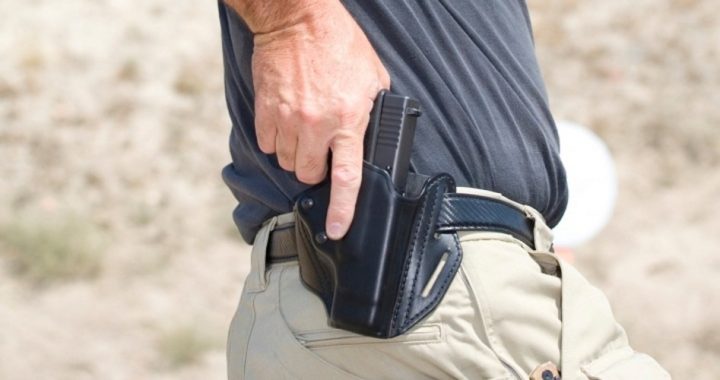
On Tuesday, the liberal Ninth Circuit Court of Appeals issued a surprisingly pro-Second Amendment ruling. In a boon for constitutionalists and pro-Second Amendment advocates, the court ruled that the Second Amendment protects open carry in public for self-defense, reversing a decision handed down by a U.S. District Court in Hawaii.
The ruling came out of a case involving a Hawaiian resident, George Young, who in 2011 had been twice denied a permit to carry a handgun. Hawaii is one of 15 states to require a permit or license to openly carry a handgun. The Hawaiian District Court determined that state officials did not infringe on the rights of one of its citizens by denying him a permit to carry a gun in public.
But Tuesday’s decision reverses that ruling, as two out of the three Ninth Circuit judges disagreed with the Hawaiian court. According to Judge Diarmuid O’ Scannlain, “We do not take lightly the problem of gun violence. But, for better or for worse, the Second Amendment does protect a right to carry a firearm in public for self-defense.”
“Once identified as an individual right focused on self-defense, the right to bear arms must guarantee some right to self-defense in public,” Judge O’Scannlain wrote for the majority. “While the concealed carry of firearms categorically falls outside such protection, we are satisfied that the Second Amendment encompasses a right to carry a firearm openly in public for self-defense.”
“Analyzing the text of the Second Amendment and reviewing the relevant history, including Founding-era treatises and Nineteenth-century case law, the panel stated that it was unpersuaded by the county’s and the state’s argument that the Second Amendment only has force within the home,” the ruling states.
The majority opinion effectively breaks down the difference between “keeping” and “bearing” arms.
“While the amendment’s guarantee of a right to ‘keep’ arms effectuates the core purpose of self-defense within the home, the separate right to ‘bear’ arms protects that core purpose outside the home,” the majority wrote. Judge O’Scannlain observed that if the authors of the Second Amendment had meant to differentiate between the two, they would have merely protected the right to “keep” arms without also enshrining the right to “bear” arms.
Judge Richard Clifton dissented from the majority, claiming states “have long allowed for extensive regulations of and limitations on the public carry of firearms.”
The National Review notes that the ruling comes one year after the Supreme Court declined to rule on the issue. But Alan Beck, Young’s lawyer, believes that the question about open carry will eventually come before the Supreme Court.
“I think the Supreme Court is receptive to this,” Beck told Reuters.
Judge Clifton made a similar prediction in his dissenting opinion. The Supreme Court, he wrote, “will find it appropriate at some point to revisit the reach of the Second Amendment and to speak more precisely to the limits on the authority of state and local governments to impose restrictions on carrying guns in public.”
In 2008, the Supreme Court ruled that the Second Amendment protects an individual’s right to keep guns at home for self-defense.
Hawaii’s state Attorney General Russell Suzuki responded to the ruling with disappointment, and claimed that Judge Clifton’s dissent was “well-reasoned” and supported the “constitutionality of this law.” Suzuki said he would be consulting with the state and local authorities to determine further action.
This marks the second time that the liberal Ninth Circuit court has ruled in favor of the Second Amendment this month. Just last week, the Ninth Circuit backed a lower court’s decision to suspend California’s ban on the possession of large magazines. The court found that the district court did not abuse its discretion in granting the injunction or by determining that magazines fall within the scope of the Second Amendment.
All of this is certainly surprising, as the Ninth Circuit has garnered a reputation for being one of the most liberal courts in the country. Fox News observes,
Critics have branded the court the “Nutty 9th” or the “9th Circus,” in part because many of its rulings have been overturned by the U.S. Supreme Court. This includes an infamous 2002 ruling that the Pledge of Allegiance is unconstitutional because of its use of the phrase “under God.”
Of course, Young’s case could be appealed to the full Ninth Circuit, where the decision could be overturned, and the Ninth Circuit could resume its role as the most liberal court in the country.




